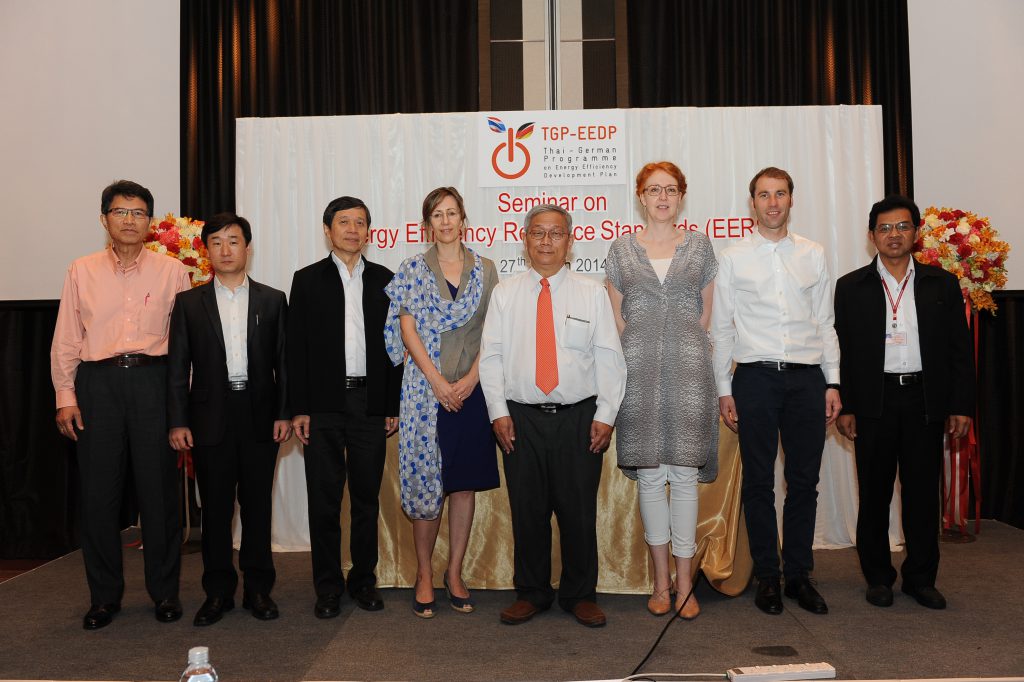Energy Efficiency Resource Standards (EERS) for large energy businesses (measure # 4) is one of the important measure for establishing standards for electricity utilities to assist consumers in the implementation of energy efficiency in order to reduce consumption but not production outputs. It means that large-scale energy businesses, e.g. those in the electricity, oil and natural gas industries will be required to implement energy conservation measures to encourage their customers to reduce energy use by a specified minimum standard (or Energy Efficiency Resource Standards: EERS). Actually, many countries around the world have implemented EERS schemes on a national or regional level (e.g. UK, France, Italy, Denmark, several US States, China, and South Korea) but sometimes in different terms basically describing the same type of policy instrument e.g. “Energy Saving Obligation”, “Energy Efficiency Portfolio Standard”, “Energy Efficiency Commitment” or “Energy Supplier/Distributor Obligation”. Therefore, in order to achieve a common understanding of EERS, and transfer knowledge and experience about international practice and experience, the TGP-EEDP programme is organising a workshop on EERS, which will be co-hosted by EPPO and GIZ.
On Tuesday 27th March, 2014, the TGP-EEDP project organized a seminar on “Energy Efficiency Resource Standards (EERS)” The main objectives of the workshop are;
- To introduce, share knowledge and understanding of EERS measure and the importance of EERS to the energy conservation in Thailand;
- To present a report on international practice and experience in the implementation of EERS;
- To gain lessons learned from experience in other countries;
- To provide a platform to discuss the policy framework of EERS in Thailand with related stakeholders.
The agenda and workshop presentations are available as below.
